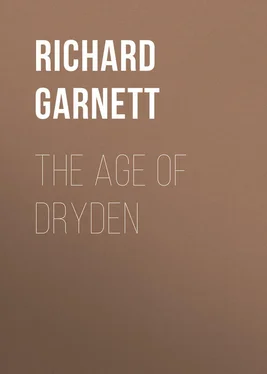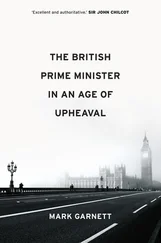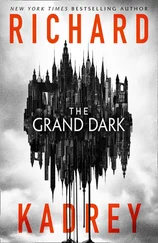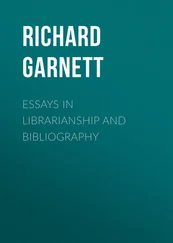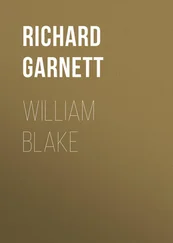Richard Garnett - The Age of Dryden
Здесь есть возможность читать онлайн «Richard Garnett - The Age of Dryden» — ознакомительный отрывок электронной книги совершенно бесплатно, а после прочтения отрывка купить полную версию. В некоторых случаях можно слушать аудио, скачать через торрент в формате fb2 и присутствует краткое содержание. Жанр: foreign_antique, foreign_prose, на английском языке. Описание произведения, (предисловие) а так же отзывы посетителей доступны на портале библиотеки ЛибКат.
- Название:The Age of Dryden
- Автор:
- Жанр:
- Год:неизвестен
- ISBN:нет данных
- Рейтинг книги:4 / 5. Голосов: 1
-
Избранное:Добавить в избранное
- Отзывы:
-
Ваша оценка:
- 80
- 1
- 2
- 3
- 4
- 5
The Age of Dryden: краткое содержание, описание и аннотация
Предлагаем к чтению аннотацию, описание, краткое содержание или предисловие (зависит от того, что написал сам автор книги «The Age of Dryden»). Если вы не нашли необходимую информацию о книге — напишите в комментариях, мы постараемся отыскать её.
The Age of Dryden — читать онлайн ознакомительный отрывок
Ниже представлен текст книги, разбитый по страницам. Система сохранения места последней прочитанной страницы, позволяет с удобством читать онлайн бесплатно книгу «The Age of Dryden», без необходимости каждый раз заново искать на чём Вы остановились. Поставьте закладку, и сможете в любой момент перейти на страницу, на которой закончили чтение.
Интервал:
Закладка:
This age of metamorphosis, therefore, is one of the most important in the history of English literature, and if the men of the Restoration could have beheld themselves in their relation, not only to their predecessors, but also to their successors, their complacency would not have been unjustifiable. Their inability to apprehend their true relation to either was a failing by no means peculiar to them, but it has exposed them to a double measure of the ridicule of posterity, who roar with laughter over Pepys’s dictum that A Midsummer Night’s Dream ‘seems but a mean thing’ after Sir Samuel Tuke’s Adventures of Five Hours , and are hardly more merciful to Dryden’s conversion of Paradise Lost into an opera. It must be owned that the conception of poetry as something awful, spiritual, and divine, became for a time extinct. Shelley’s Defence of Poetry, could such a work have existed, would have seemed even more absurd to that age than Mr. Pepys’s critical deliverances do to ours. The excuse is that the particular work assigned to the period was incompatible with a very high standard of poetry. This work, as we have seen, was the regeneration of English prose by the elimination of those elements which unfitted it for clear precise reasoning and practical business, and the making English a tongue in which Bunyan and Cobbett might be classics equally with Bacon and Sir Thomas Browne. Such an achievement implies a prosaic age. If the latter part of the seventeenth century could have produced Miltons, these would have continued to write as Milton did: it was therefore fortunate for the language in the long run that supreme genius should have for the time died out, and have been replaced by a vigorous, terrestrial, unideal genius that, having no oracle, required no tripod. For a time, no doubt, the contrast must have seemed very dismal to any who yet retained a perception of the richness and glory of the Elizabethan epoch. But we, if we compare, not to say the letters of Cromwell, but those of Charles I., with the despatches of Wellington, cannot but be sensible of an enormous advance, not merely in the effectiveness of speech, but in its dignity and simplicity, and of a great enrichment of the language by the newly acquired power to deal with common things. For this the men of the Restoration are to be thanked: and it must be added that their work could not have been done if they had not thoroughly believed in it; and that this belief necessitated, except in such superior minds as Dryden’s, contempt for their predecessors and a genuine preference of their sorry foreign models to Shakespeare. The revolution which they effected in matters of taste may be compared to the contemporary revolution in politics. The Restoration government was a sad decline from the enthusiastic visions of Milton and Vane, or even from the wise and sturdy sway of Cromwell. Nevertheless the English nation accepted and maintained it as the best arrangement which the circumstances of the time admitted. So the new style in literature was universally accepted because the old style was for a time effete; because tasks had been imposed and needs had arisen to which it was unable to respond; because, in short, a prosaic age craved a prosaic literature. We look, therefore, on the Restoration period as anything but an ideal epoch, but at the same time as a most momentous one; as one to which we are indebted for much of our present command over the resources of our language; and to which Britain owes very much of her present power over the world. Acquaintance with its leading representatives also proves that, if less picturesque figures than their predecessors, they were not inferior in mental power. And, although the age is justly regarded as in the main an age of prose; yet, as poets respond most readily to the influences of their time, and are usually in the van of intellectual revolutions, so the leading figure in the literary history even of this epoch of prose is a poet – Dryden, doubtless the most prosaic of all our great poets, but inferior to none in intellectual force; and one whose poverty and pliability made him the mirror of the less worthy tendencies of his time on the one hand, while his higher aspirations and the force of his genius rendered him no less the representative of its better qualities on the other. With Dryden, therefore, we commence our survey.
CHAPTER I.
JOHN DRYDEN AS A POET
John Dryden was born August 9, 1631, at Aldwinkle All Saints, between Thrapston and Oundle, in Northamptonshire. He was the grandson of Sir Erasmus Dryden, baronet, of Canons Ashby, in the same county; and his father possessed a small landed property, which he transmitted to the poet. Dryden maintained a connection with his native county all his life, but it was never close; of the rest of the world, outside London and Cambridge, he only occasionally saw anything. Few of our great writers have been so thoroughly identified with the metropolis, of which he became an inhabitant at an early age by his entry at Westminster School, the precise date of which is unknown. Locke and South were among his schoolfellows. He must have distinguished himself, having been elected to Cambridge in 1650. Before leaving Westminster he had made his first appearance as an author by the publication of a copy of verses on the death from smallpox of his schoolfellow Lord Hastings, an unintentional reductio ad absurdum of the reigning fashion of extravagant conceits in the style of Marino and Gongora. This composition, otherwise worthless, foreshadows in a manner the whole of Dryden’s career. He was not one of the writers who themselves form the taste by which they are ultimately judged, but rather one of those who achieve fame by doing best what all desire to be done; the representatives of their age, not its reformers. Little is known of his career at Cambridge except that he was on one occasion ‘discommoned and gated’ for some irregularity, that he took his degree in 1654, and, though obtaining no fellowship, continued to reside until about 1657, when he removed to London, with what precise plans or expectations is uncertain. 1 1 He was an ungrateful son of his alma mater , having pointedly declared his preference for Oxford. Perhaps this disloyalty may be connected with the appearance at Cambridge of a pamphlet against him, in the form of a mock defence against “the censure of the Rota,” in the same year (1673).
The general knowledge displayed in his critical writings (he scarcely ever, says Johnson, appears to want book-learning but when he mentions books) justifies the conclusion that his time had been employed in study: how greatly his mind had matured was attested by his verses on the death of Cromwell (1658), which, if disfigured by some conceits, exhibit a more sustained elevation than any contemporary except Milton or Marvell could have attained. They were rivalled by his congratulatory verses on the Restoration (1660), which naturally exposed him to the reproach of inconsistency, but, as Johnson remarks, ‘If he changed, he changed with the nation.’ There can, indeed, be no doubt that the establishment of a settled government was approved by the good sense as well as by the loyalty of the country, and although circumstances were to make Dryden the most formidable of political controversialists upon paper, his temperament was not that of a polemic, and, save when he had committed himself too far to retreat, he was always ready to acquiesce in what commended itself to the general sentiment of his countrymen. The Restoration was also a joyful event to men of letters, if for no other reason than that it re-opened the stage, which, while as yet the periodical press was not, afforded the best market and the readiest opportunity for literary talent. Dryden is said to have had a play ready soon after the Restoration, and it is difficult to understand, except from a certain inertness in his constitution, ever most readily responsive to the spur of necessity, why he should have so long delayed his appearance as a dramatist. The determining motive may ultimately have been his marriage (not, apparently, a very fortunate one) to Lady Elizabeth Howard, eldest daughter of the Earl of Berkshire, in December, 1663; for in that year he produced his first play, The Wild Gallant , and from that time we find him, for many years, sedulously at work to earn money by a description of literary activity notoriously uncongenial to him. Only one of his numerous plays, he tells us, was written to please himself. The long list includes, The Indian Emperor (1665), in which, instead of reforming the weak blank verse of his day, which would have been a most important service, he fell in with the prevalent fashion of rhymed tragedy; Tyrannic Love (1669), and The Conquest of Granada (1672), in which he carries rhymed bombast as far as it would go, but at the same time displays surprising energy and vigour; Aurengzebe (1675), also a rhyming play, but a great improvement; All for Love (1678), and Don Sebastian (1690), examples of a purer taste; and The Spanish Friar (1683), and Amphitryon (1690), his best comedies. These pieces, the chief landmarks of his dramatic career, will be subsequently considered.
Интервал:
Закладка:
Похожие книги на «The Age of Dryden»
Представляем Вашему вниманию похожие книги на «The Age of Dryden» списком для выбора. Мы отобрали схожую по названию и смыслу литературу в надежде предоставить читателям больше вариантов отыскать новые, интересные, ещё непрочитанные произведения.
Обсуждение, отзывы о книге «The Age of Dryden» и просто собственные мнения читателей. Оставьте ваши комментарии, напишите, что Вы думаете о произведении, его смысле или главных героях. Укажите что конкретно понравилось, а что нет, и почему Вы так считаете.
